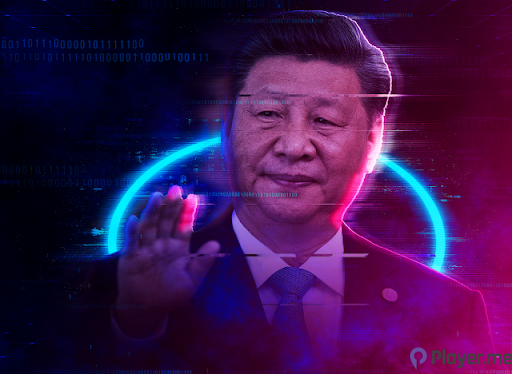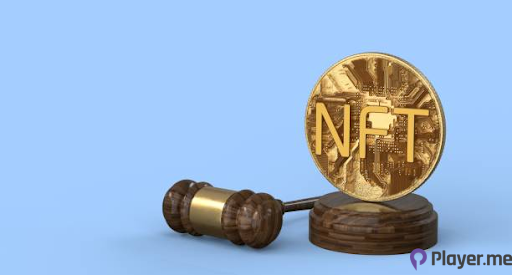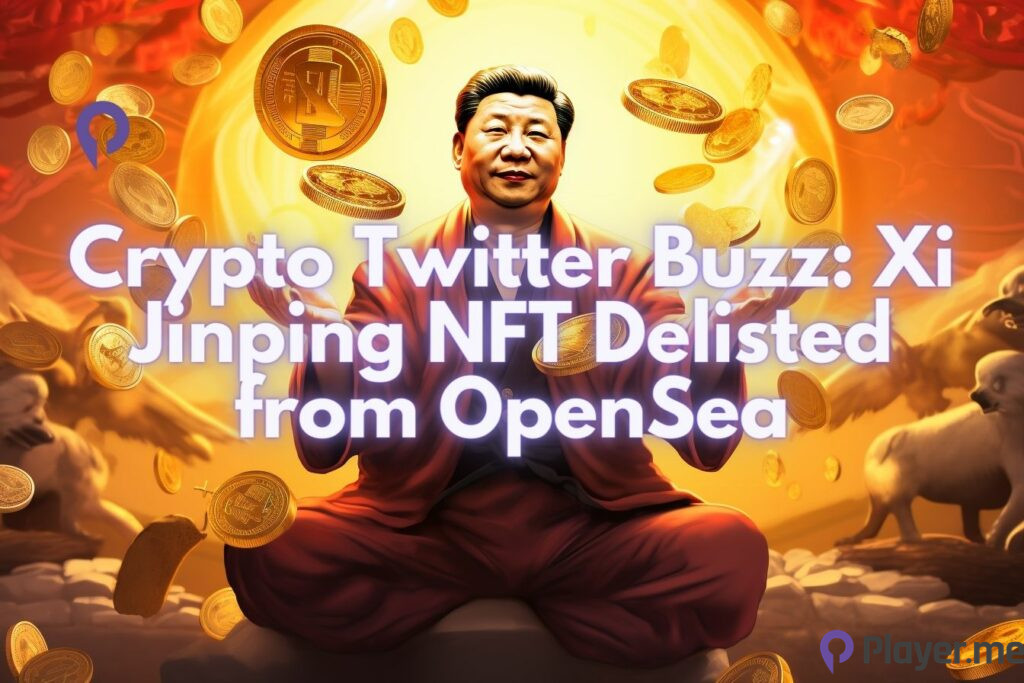Xi Jinping’s NFT Controversy
June has been a roller coaster for the crypto world. Last week, an NFT depicting Chinese President Xi Jinping as Winnie the Pooh was delisted from OpenSea, a major NFT marketplace. The news broke through NFT enthusiast @Anonymoux2311, who later deleted the post on Twitter.
The NFT had been listed for sale for 0.02 ETH, equivalent to about $70. It was attributed to an anonymous artist known as “Pedo Bear.” The delisting of the NFT sparked a significant debate, as some users accused OpenSea of engaging in censorship.
This incident brought attention to the complexities of moderating content on decentralised NFT platforms, where clear guidelines regarding permissible content are often lacking. The absence of such guidelines can create challenges in determining what is acceptable and what may violate certain community standards. NFTs have faced restrictions in China, where they are banned entirely. As such, removing the Xi Jinping NFT from OpenSea may have been an effort to comply with Chinese regulations and avoid potential legal issues.

OpenSea’s Decision: The Factors Behind Xi Jinping’s NFT Delisting
A) Compliance with Terms of Service
OpenSea, like many other online platforms, has guidelines and terms of service that users must adhere to when using their platform. In this case, the NFT in question depicted Xi Jinping as Winnie the Pooh.
This character has been used to symbolise dissent against the Chinese government. The portrayal of a political figure in such a manner may have been seen as “Hateful, discriminatory, or offensive”, according to OpenSea’s terms of service. To uphold its content guidelines and maintain a positive environment, OpenSea likely decided to remove the NFT.
B) Legal Concerns

China’s strict stance on cryptocurrencies and NFTs is well-known, with the government implementing a ban on these digital assets. By listing an NFT depicting the Chinese president, OpenSea risked violating Chinese law and potentially facing legal consequences.
The Chinese government has been known to take action against companies that allow content critical of the government, leading OpenSea to tread cautiously and avoid any potential legal entanglements.
Also Read: Binance Pulls Out of Canada Due to New Crypto Regulations
C) Avoiding Government Attention
Operating in a global market means online platforms like OpenSea must navigate complex regulatory landscapes. In China, authorities closely monitor online platforms for politically sensitive content or against their interests.
By delisting the Xi Jinping NFT, OpenSea may have aimed to avoid drawing unwanted attention from the Chinese government, which could have repercussions ranging from restricted access to legal challenges.
Also Read: Ether and XRP Outshine Bitcoin in Crypto Investments
D) User Sentiments
OpenSea’s users play a significant role in shaping the platform’s community and reputation. Some users may have expressed concerns or disapproval of the Xi Jinping NFT, deeming it offensive and inappropriate.
As a platform committed to fostering a positive user experience, OpenSea likely considered its user base’s sentiments. By removing the contentious NFT, OpenSea sought to align with its community’s expectations and avoid potential backlash.
OpenSea’s Rules Regarding NFTs
Content Guidelines
- No hateful content: OpenSea prohibits content viewed as racist, sexist, homophobic, or otherwise discriminatory.
- No harmful content: Contents perceived to be violent, threatening, or otherwise harmful are not allowed by OpenSea.
- No illegal content: Content that violates copyright law or other laws is prohibited from being listed on OpenSea.
- No spam: This includes content that is unsolicited or irrelevant.
- No misleading content: This includes content that is false or misleading.
Intellectual Property
Users are prohibited from listing NFTs to which they do not own intellectual property rights.
What Does Delisting Mean for the Future of NFTs?

The delisting of the Xi Jinping token highlights the complexities of content moderation in NFT marketplaces. NFTs often operate in a decentralised manner with vague guidelines on acceptable content, making enforcement challenging for platforms like OpenSea.
Moreover, this incident raises concerns about potential implications for free speech within NFT spaces. Content creators might hesitate to express views critical of powerful entities if they fear their work could be delisted. The future of NFT regulations remains uncertain, and the delisting underscores the cautious approach taken by governments toward this technology. While the long-term impact of this delisting remains unclear, it has sparked discussions about content moderation challenges on NFT platforms, particularly in countries with stricter censorship laws.
Moving forward, it will be interesting to observe how the NFT landscape in China evolves. The Xi Jinping NFT controversy has drawn attention to the importance of establishing clear content guidelines in NFT marketplaces. This helps ensure an open and thriving environment for creators and users alike.
The Future of NFTs in China
The Chinese government has adopted a cautious stance towards NFTs, meaning that the future of this technology is uncertain in China. The Chinese government banned the sale of NFTs on centralised exchanges in September 2021. Financial risks were the reason cited for arriving at the ban. However, the creation and ownership of NFTs have not been banned, as some decentralised NFT marketplaces continue to operate in China.
Several scenarios exist regarding the future of NFTs in China. One possibility is that the government may continue prohibiting the sale of NFTs on centralised exchanges. This move would still allow NFT to be created and owned on decentralised platforms. However, the downside is that it could limit the broader adoption of NFTs in China.
Another scenario involves the government eventually lifting the ban on the sale of NFTs on centralised exchanges. Lifting the ban could make NFT more popular in the country while necessitating careful regulation to address potential speculation and financial risks. Alternatively, the government might choose to develop its own NFT platform. While this approach gives them control of the NFT market, it could stifle innovation and creativity in the NFT space.
Predicting the precise path the government will take regarding NFTs in China is challenging. The cautious approach taken by authorities suggests that widespread adoption of NFTs in the country may require more time and careful consideration. We’ll need to watch how the situation evolves better to understand the future landscape of NFTs in China.
Conclusion
The delisting of Xi Jinping’s NFT from OpenSea sparked heated discussions on Crypto Twitter. While the future of NFTs in China remains uncertain, it highlights the ongoing balance between innovation, regulation, and creative expression in the dynamic world of cryptocurrencies.
Frequently Asked Questions
What Is an NFT?
An NFT, or non-fungible token, is a unique digital asset stored on a blockchain. NFTs can represent anything from art to music to videos.
Why Was the Xi Jinping NFT Delisted From OpenSea?
Xi Jinping’s NFT was removed from OpenSea due to violating the platform’s terms of service, which forbid “Hateful, discriminatory, or offensive content”. The NFT featured an image of Xi Jinping portrayed as Winnie the Pooh. This character has been used in China as a symbol of dissent against the government.
What Are the Implications of the Delisting for the Future of NFTs?
The delisting of the Xi Jinping NFT could potentially impact the development and acceptance of NFTs within the country’s regulatory framework. Moreover, it might influence how creators express themselves on NFT marketplaces, as there could be concerns about repercussions when creating content critical of governments or powerful entities.





